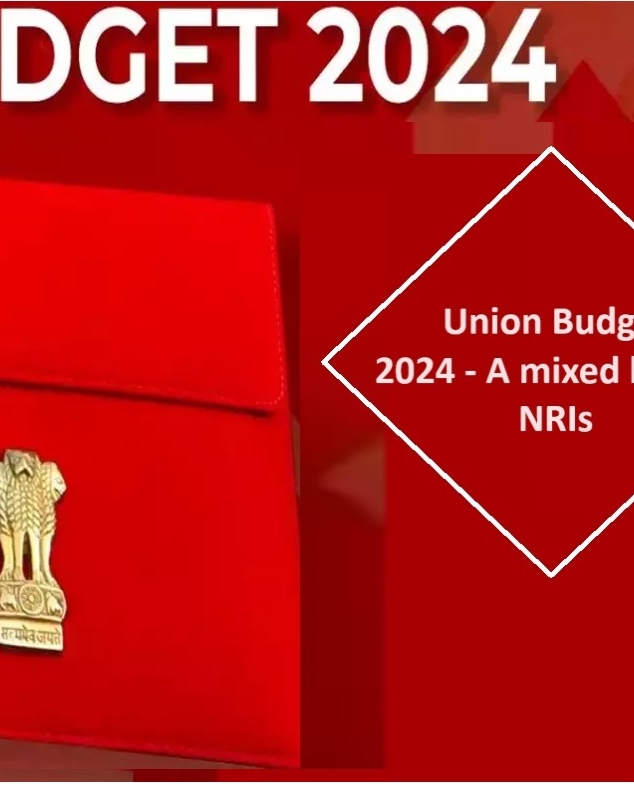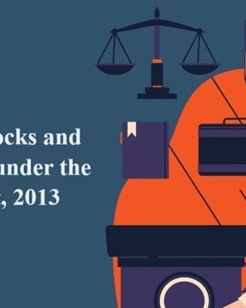CIRP Of Real Estate Companies – Project Specific Resolution
Authors: Sandeep Bhuraria, Senior Partner and Monish Surendran, Senior Associate at ZEUS Law
Published in Live Law on 24th June 2023
In India, there was a need to enact a single statute encompassing provisions to resolve insolvency for companies, limited liability partnerships, partnership firms and individuals. In light of the same, the Insolvency & Bankruptcy Code, 2016 (“Code”) was passed and notified in the Gazette of India on 28 May 2016 thereby consolidating all of the insolvency laws pertaining to companies, limited liability partnerships, partnership firms and individuals. Under the Code, through a creditor driven process, distressed companies were given a chance to resolve themselves by utilising the Corporate Insolvency Resolution Process (“CIRP”) provided in the Code.
Initially, in the Code there were general provisions for initiation of the CIRP proceedings of companies and hence, there were no specific provisions pertaining to real estate companies. However, the initiation of the CIRP proceedings of real estate giants like Amrapali Infrastructure Private Limited and Jaypee Infratech Limited and the non-inclusion of allottees as financial creditors under the Code created a hue and cry among the allottees and hence, it was apparent that the Code had to be amended.
As there were no specific provisions in the Code with regard to allottees, the allottees would approach consumer forums or Real Estate Regulatory Authorities to address their grievances with regard to delay in delivery of their respective units rather than approaching the National Company Law Tribunal (“NCLT”) under the Code.
However, in 2018, vide Insolvency and Bankruptcy Code (Second Amendment) Act, 2018 (26 of 2018), the legislature amended Section 5(8)(f) of the Code and inserted a provision stating that an amount raised from an allottee would qualify as a financial debt and hence, explicitly classified allottees as financial creditors and empowered allotees to file an application under Section 7 of the Code for initiating the CIRP proceedings of a real estate company. The said amendment was also upheld by the Hon’ble Supreme Court in the matter of Pioneer Urban Land and Infrastructure Limited & Anr. Vs. Union of India & Ors.
Thereafter, another change became prevalent in the CIRP proceedings of real estate companies, i.e., project specific invitation of resolution plans. As per the Code, expression of interest (“EOI”) for submitting a resolution plan for the corporate debtor as a whole was required to be undertaken. However, in various cases, no EOIs were received for submitting a resolution plan for the corporate debtor as a whole and hence, the committee of creditors of the corporate debtors would pass a resolution for inviting EOIs for submitting resolution plans for the projects of the corporate debtor. Hence, the applicability of the Code was being done in a manner which would accommodate the issues faced by real estate companies.
Subsequently, in February 2020, the need for confining the CIRP proceedings to the distressed project in question was observed by the bench of Justice S.J. Mukhopadhaya and Mr. Bansi Lal Bhat of the National Company Law Appellate Tribunal (“NCLAT”) in the matter of Flat Buyers Association Vs. Umang Realtech Private Limited through IRP and Others. The NCLAT held that if the allottees, financial institutions / banks or operational creditors of a project initiate the CIRP proceedings of a real estate company then it should be confined to the said project and should not include other projects of the real estate company. It was observed that different projects of a real estate company would be situated at different places, where separate plans are approved by different authorities, landowners may be distinct from the real estate company in question and the allottees, financial institutions / banks and operational creditors of each project would also be different for each project.
It was held that the assets of the project under default should be maximized for balancing the interests of the creditors of the project in default. Further, it was held that the creditors of other real estate projects of the corporate debtor should not be included in the CIRP proceedings of the project in default.
Subsequently, vide Insolvency & Bankruptcy Code (Amendment) Act, 2020 (1 of 2020) dated 13.03.2020, the legislature incorporated a threshold on allottees for initiating the CIRP proceedings of a real estate company. A requirement of 100 homebuyers or 10% of the allottees of the same project, whichever is lower, was incorporated thereby restricting the filing of an application praying initiation of the CIRP of a Corporate Debtor to the project in default.
The threshold incorporated through Insolvency and Bankruptcy Code (Amendment) Act 2020 (1 of 2020) in Section 7 of the Code was upheld by the Hon’ble Supreme Court in Manish Kumar Vs. Union of India & Anr. and it was affirmed that the allottees should be from the same project thereby affirming the tenet of law that the initiation of the CIRP proceedings could only be done by the allottees of the project in default.
Taking a cue from the decision of the NCLAT in the matter of Flat Buyers Association (supra), various NCLTs have passed orders initiating project specific CIRP in case of real estate companies. Certain matters in which project specific CIRP was initiated are provided herein below for reference:
- Umesh Chander & Ors. Vs. GRJ Distributors & Developers Private Limited – Project Avalon Rosewood
- Dreamz Sneh Project Allottees Welfare Association Vs. Dreamz Infra India Limited – Project Dreamz Sneh
- Shakuntala Joshi and Ors. Vs. Hyper Techno Buildmart Private Limited and Ors. – Project Shree Madhav Residency
- Anil Kaushal and Ors. Vs. Logix City Developers Private Limited – Project Blossom Zest
- Ashok Kriplani Resolution Professional of Dreamz Infra India Limited vs. Venugopal Swamy Temple and Ors. – Project Dreamz Sumadhur
The concept of project specific CIRP was again utilized by the Hon’ble NCLAT in the case of Ajai Kumar Gupta Vs. Ashwani Kumar Singla (IRP of Ansal Properties and Infrastructure Limited). Allottees of the project “Fernhill” had initiated the CIRP proceedings of Ansal Properties and Infrastructure Limited which was challenged by the allottees of the other projects of the corporate debtor. The NCLAT vide Order dated 13.01.2023, in the interim, restricted the CIRP to the project in default, i.e., FernHill.
Further, in the case of Ram Kishor Arora Suspended Director of M/s. Supertech Limited versus Union Bank of India, an appeal was filed before the NCLAT challenging the initiation of the CIRP proceedings of Supertech Limited. The NCLAT, vide an interim order dated 10.06.2022, restricted the CIRP proceedings to Eco Village-II and directed the IRP to constitute the CoC for the said project and invite resolution plans for the same. The said interim order was challenged before the Supreme Court in the case of Indiabulls Asset Reconstruction Company Limited v Ram Kishore Arora & Ors; however, the Supreme Court declined to alter the directions passed by the NCLAT vide order dated 10.06.2022 with respect to Eco Village-II.
Even in the case of Ambika Prasad Sharma Erstwhile Director of Horizon Buildcon Pvt. Ltd. vs. Horizon Buildcon Pvt. Ltd. and Ors., the NCLAT held that the CIRP should be restricted to a project in default.
Further, even the intent of the government is clear in this regard. The Ministry of Corporate Affairs has recently published a discussion paper dated 18.01.2023 titled “Invitation of comments from the public on changes being considered to the Insolvency and Bankruptcy Code, 2016” wherein comments have been sought from the public for amending the Code for incorporating project specific CIRP in case of real estate companies.
Hence, it is probable that the Code will be suitably amended in the near future to incorporate project specific CIRP thereby making the Code more suitable to real estate companies and affirming the views of the courts with regard to project specific resolution.
“About the Authors: Mr. Sandeep Bhuraria, has been a practicing lawyer for about 30 years and is a Senior Partner at ZEUS Law Associates. He leads the Commercial Litigation and Restructuring division.
Monish Surendran, is a Senior Associate at ZEUS Law Associates and works in the Commercial Litigation and Restructuring division.”






















